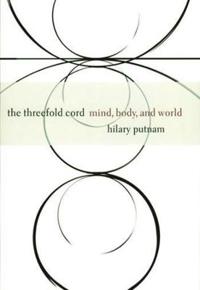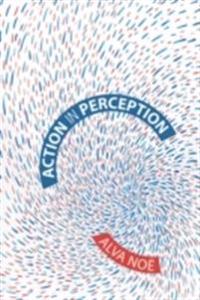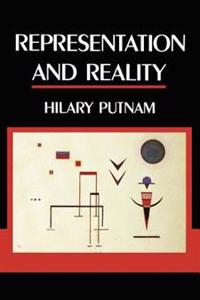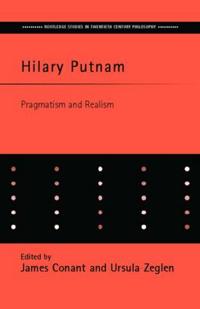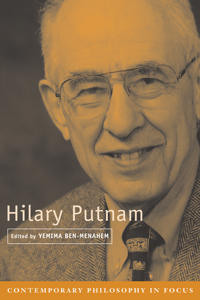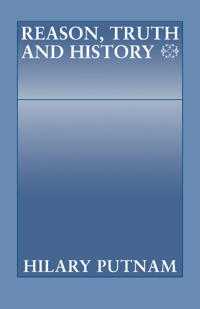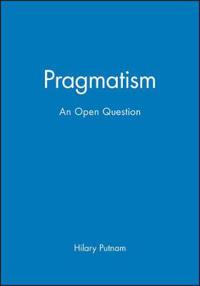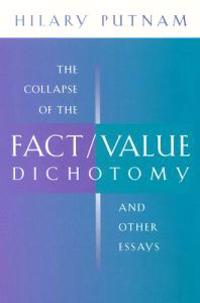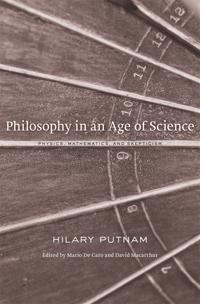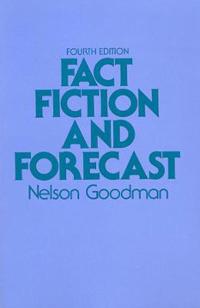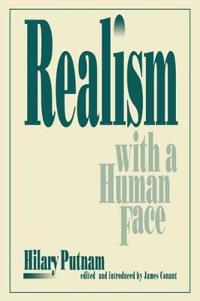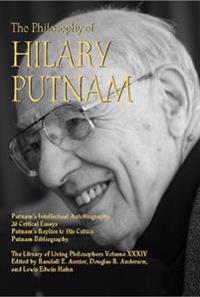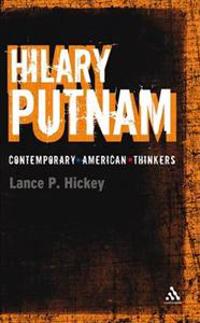The Threefold Cord (Häftad)
avHilary Putnam
ISBN: 9780231102872 - UTGIVEN: 200103What is the relationship between our perceptions and reality? What is the relationship between the mind and the body? These are questions with which philosophers have grappled for centuries, and they are topics of considerable contemporary debate as well. Hilary Putnam has approached the divisions b[...]
Consciousness, Color and Content (Inbunden)
avMichael Tye, Ned Block, Hilary Putnam
ISBN: 9780262201292 - UTGIVEN: 2000-09-01Action in Perception (Häftad)
avAlva Noe, Ned Block, Hilary Putnam
ISBN: 9780262640633 - UTGIVEN: 200602"Perception is not something that happens to us, or in us," writes Alva Noe. "It is something we do." In Action in Perception, Noe argues that perception and perceptual consciousness depend on capacities for action and thought -- that perception is a kind of thoughtful activity. Touch, not vision, s[...]
Representation and Reality (Häftad)
avHilary Putnam
ISBN: 9780262660747 - UTGIVEN: 199110Hilary Putnam, who may have been the first philosopher to advance the notion that the computer is an apt model for the mind, takes a radically new view of his own theory of functionalism in this book. Putnam argues that in fact the computational analogy cannot answer the important questions about th[...]
Hilary Putnam (häftad)
ISBN: 9780415408431 - UTGIVEN: 2006-04One of the most influential contemporary philosophers, Hilary Putnam's involvement in philosophy spans philosophy of mind, philosophy of language, ontology and epistemology and logic. This specially commissioned collection discusses his contribution to the realist and pragmatist debate. Hilary Putna[...]
Philosophy of Logic (Häftad)
avHilary Putnam
ISBN: 9780415581257 - UTGIVEN: 201007First published in 1971, Professor Putnam's essay concerns itself with the ontological problem in the philosophy of logic and mathematics - that is, the issue of whether the abstract entities spoken of in logic and mathematics really exist. He also deals with the question of whether or not reference[...]
Hilary Putnam (Häftad)
ISBN: 9780521012546 - UTGIVEN: 200501The richness of Putnamâs philosophical oeuvre consists not only in the broad spectrum of problems addressed, but also in the transformations and restructuring his positions have undergone over the years. The essays collected in this volume are sensitive to both these dimensions. They discuss Pu[...]
Reason, Truth and History (Häftad)
avHilary Putnam
ISBN: 9780521297769 - UTGIVEN: 198112Hilary Putnam deals in this book with some of the most fundamental persistent problems in philosophy: the nature of truth, knowledge and rationality. His aim is to break down the fixed categories of thought which have always appeared to define and constrain the permissible solutions to these problem[...]
Pragmatism (Häftad)
avHilary Putnam
ISBN: 9780631193432 - UTGIVEN: 199412Hilary Putnam has been at the center of contemporary debates about the nature of the mind and of its access to the world, about language and its relation to reality, and many other metaphysical and epistemological issues. In this book he turns to pragmatism - and confronts the teachings of James, Pe[...]
The Collapse of the Fact/Value Dichotomy and Other Essays (Häftad)
avHilary Putnam
ISBN: 9780674013803 - UTGIVEN: 200404Although it is on occasion important and useful to distinguish between factual claims and value judgments, the distinction becomes, Hilary Putnam argues, positively harmful when identified with a dichotomy between the objective and the purely "subjective." Lively, concise, and wise, his book prepare[...]
Philosophy in an Age of Science (Inbunden)
avHilary Putnam
ISBN: 9780674050136 - UTGIVEN: 201204Hilary Putnam's unceasing self-criticism has led to the frequent changes of mind he is famous for, but his thinking is also marked by considerable continuity. A simultaneous interest in science and ethics - unusual in the current climate of contention - has long characterized his thought. In "Philos[...]
Fact, Fiction, and Forecast (Häftad)
avNelson Goodman, Hilary Putnam
ISBN: 9780674290716 - UTGIVEN: 199007Here, in a new edition, is Nelson Goodman's provocative philosophical classic--a book that, according to Science, "raised a storm of controversy" when it was first published in 1954, and one that remains on the front lines of philosophical debate. How is it that we feel confident in generalizing fr[...]
Realism with a Human Face (Häftad)
avHilary Putnam
ISBN: 9780674749450 - UTGIVEN: 199204In this book, one of America's great philosophers calls upon his peers to embed philosophy in social life. Connecting metaphysics to cultural and literary issues, Putnam argues that the collapse of philosophical realism does not entail a fall into the abyss of relativism and postmodern skepticism. I[...]
The Philosophy of Hilary Putnam
ISBN: 9780812698930 - UTGIVEN: 2015-06Hilary Putnam, who turned 88 in 2014, is one of the world's greatest living philosophers. He currently holds the position of Cogan University Professor Emeritus of Harvard. He has been called "one of the 20th century's true philosophic giants" (by Malcolm Thorndike Nicholson in Prospect magazine). H[...]
Hilary Putnam (Häftad)
avLance P. Hickey
ISBN: 9781847060778 - UTGIVEN: 200902Hilary Putnam is one of America's most important living philosophers. This book offers an introduction to and overview of Putnam's ideas, his writings and his contributions to the various fields of philosophy.Hilary Putnam is one of America's most important and influential contemporary philosophers.[...]
Naturalistic Realism and the Antirealist Challenge (Inbunden)
avPutnam, Hilary, Khlentzos, Drew, Block, Ned
ISBN: 9780262112857 - UTGIVEN: 2004-05-07In this important book, Drew Khlentzos explains the antirealist argument from a realist perspective. He defends naturalistic realism against the antirealist challenge, and he considers the consequences of his defense for our understanding of realism and truth. Khlentzos argues that the naturalistic [...]
Ethics without Ontology (Pocket)
avPutnam, Hilary
ISBN: 9780674018518 - UTGIVEN: 2005-11-01In this brief book one of the most distinguished living American philosophers takes up the question of whether ethical judgments can properly be considered objective--a question that has vexed philosophers over the past century. Looking at the efforts of philosophers from the Enlightenment through t[...]
Renewing Philosophy (Pocket)
avPutnam, Hilary
ISBN: 9780674760943 - UTGIVEN: 1995-10-02Hilary Putnam, one of America's most distinguished philosophers, surveys an astonishingly wide range of issues and proposes a new, clear-cut approach to philosophical questions--a renewal of philosophy. He contests the view that only science offers an appropriate model for philosophical inquiry. His[...]
The End of Value-Free Economics (Pocket)
avHilary (EDT) Putnam, Vivian (EDT) Walsh, Harvey (CON) Gram
ISBN: 9781138799554 - UTGIVEN: 2014-05This book brings together key players in the current debate on positive and normative science and philosophy and value judgements in economics. Both editors have engaged in these debates throughout their careers from its early foundations; Putnam as a doctorial student of Hans Reichenbach at UCLA an[...]

